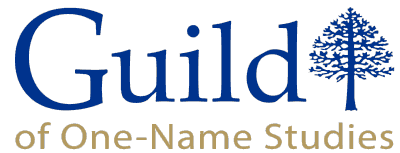September 12, 2012 – John Pemberton, a New Zealander of the famous old ffrench-Pemberton line, joined the Pemberton DNA Project recently by submitting his sample for testing. Today we learn from the returns of that test, that this famous old branch has a completely different biological origin than the other lines found in the Pemberton DNA Project at this early date. (The project is hardly two years old.) The fact that only 7 of 37 markers match, means that biologically, this line has a common ancestor with the other Pemberton lines thousands of years ago. However, in genealogical terms, there is no reason to question whether John is or isn’t a Pemberton. DNA is a powerful asistant in doing genealogical research, and in this particular instance again shows it’s value by adding decisive weight to the story that the line began in a foundling hospital, Coram’s Field, London, in 1788. John’s patriarchal line goes back beginning with his father:·Stuart ffrench Pemberton (1925 – ); Archie Douglas Pemberton (1892 – 1979); Frederick ffrench Pemberton (1861 – 1835); Charles ffrench Pemberton (1835 – 1905); Robert Pemberton (1788 -1859). Robert, a foundling, was adopted at age 13 and grew up in the home of near-royalty as outlined below.
In an email dated August 1, John shared with the PFWW the following details about this original Robert Pemberton:
1) Foundling Hospital, Coram’s Fields, London, UK. Family history suggests he was given the name of one of the Foundling Home’s Directors.
2) Foundling Home Nursery Book, 1759-1812, No. 4, records his number as 18061 and the fact that he was sent out to nurse on 8 May 1788 and returned on the 7 October 1793.
3) At about 14 years of age, he was apprenticed to Edward Southbrook to be “instructed in household business till the age of 21 years”
4) Robert was adopted in 1801 by Edward Southbrook and Georgina Charlotte Augusta Southbrook (nee Denoyer).
The book, Pemberton Pedigrees by Robert Charles Boileau Pemberton, contains the following commentary regarding this line:
Chart 40. The ffrench-Pembertons, of New Zealand:
This family is descended from a Robert Pemberton (1787 – 1877) concerning whose parentage there was always a mystery. The following information is derived from correspondence with this daughter, Miss E. Mary Pemberton (No. 6) (who is living at Folkestone), his daughter-in-law, Mrs. Charles ffrench-Pemberton (No. 3), of Sefton, N.Z., and his grand-daughter, Mrs. Ensor, now Mrs. J. C. Butt, of Rollesby Hall, Norfolk (No. 15).
Robert Pemberton would never speak of his parentage, and was always regarded as the adopted son of a Mrs. Southbrook. This lady was the daughter of Count Philip Denoyer who came over from France during the Revolution, and the god-daughter of Queen Charlotte, and as a child spent much of her time at Kensington Palace. After her marriage with Mr. Southbrook she became acquainted with young Robert Pemberton, to whom she became greatly attached, and of whom she took the greatest care, so that he always looked upon her as his mother. He attended Levées at Court with her and her friends until his own marriage in 1824, when he was 40 years old. On his coming of age Robert had £500 settled on him, but it is not known by whom. His wife was Elizabeth Anne Evans, by whom he had five children. In 1838 the family went to France, living at first in the Provinces, and later in Paris. There the eldest son, Robert, studied at the Sorbonne, and took his Bachelor’s degree. Among his father’s many friends was Lady Broomhead, widow of General Broomhead, and daughter of Lord ffrench. She stood as godmother to Robert Pemberton’s second son, Charles ffrench, who thus introduced the distinctive name into this family. In consequence of the revolutionary disturbances in 1848 the Pembertons returned to England and lived at Chelsea until the marriage of the son Charles in 1856, when the son went to New Zealand, and the father moved to St. Albans where he died at the age of 90, in 1877.
The Pemberton Family World Wide continues to research these new results by conferring with the DNA expert at the Guild of One-Name Studies, Susan Meates.


